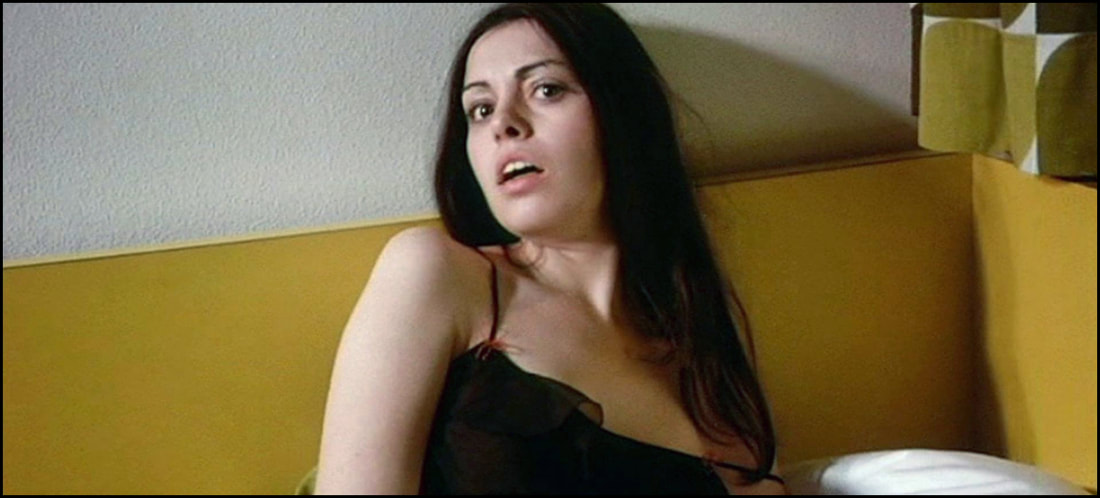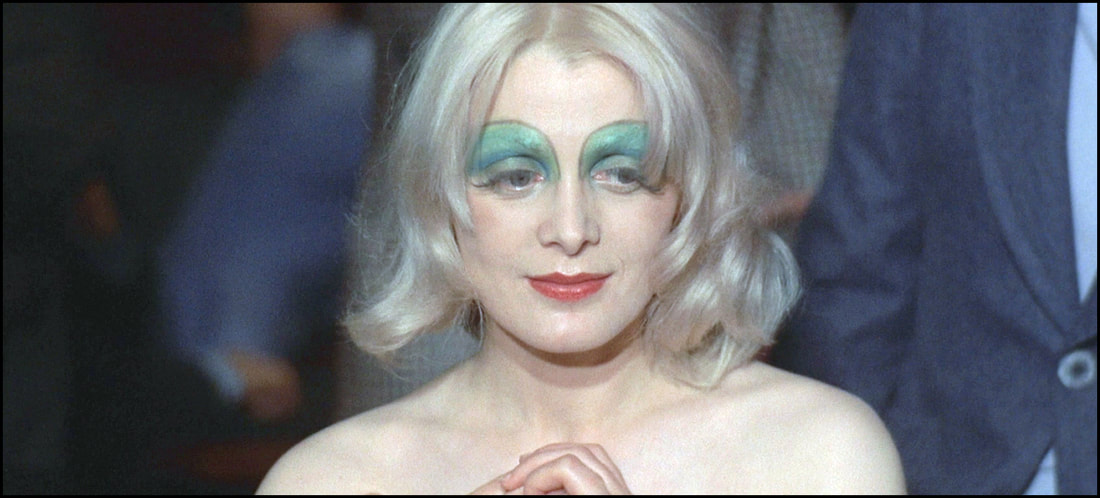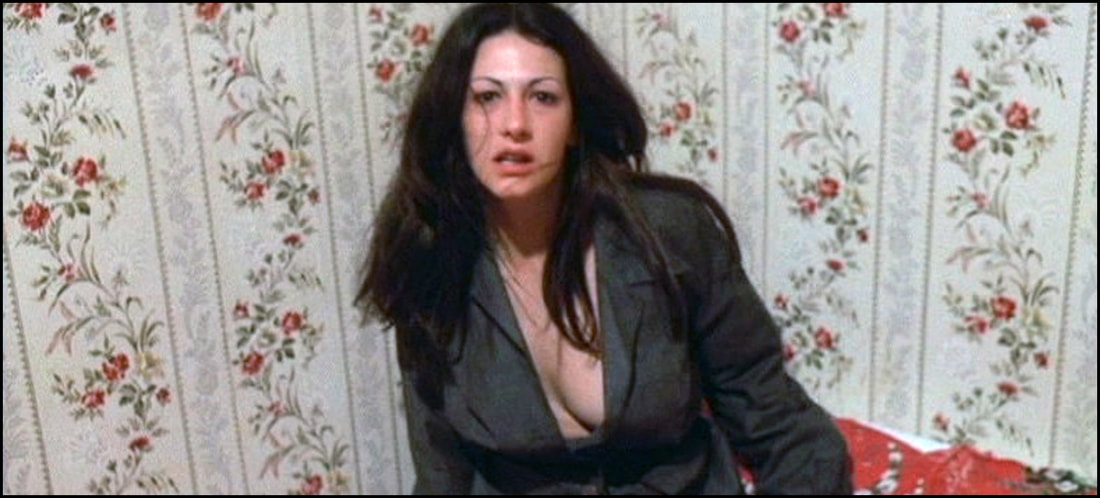From the (corrected) film’s IMDB.com page citation:
“A man is tormented by an ex-lover, Lorna, who possesses a strange power over women, including the man’s daughter.”
Here’s the thing, writer/director Jesús Franco: you don’t make it easy for fans to defend you.
I know, I know, I know: anyone who has followed film – especially foreign releases, and, yes, I do say this as an American – has likely heard of Franco and his – snicker snicker – body of work. Think what you will, but the auteur is probably best recognized as being one of Spain’s premier makers of reasonably low-budgeted exploitation fare, the kind of thing that used to be relegated to backroom video store shelves and/or obscure pay cable channels. Yes, there’s a fair amount of T’n’A – if you know what I mean – and, being no prude, I certainly have no issues with that. However … Franco can really try an audience’s patience regularly.
If one considers Lorna … The Exorcist (1974) as a somewhat typical product of the man’s talents and imagination (he is credited as both director and co-screenwriter), then the troubles begin right out of the gate: the flick opens with a – ahem – nine-minute sequence of lustful exploration between two comely lasses, only to end with a curious cut to all new characters and circumstances. In fairness, I believe the audience was led to conclude that this somewhat exhaustive opening sequence was the product of a fanciful dream experienced by an inmate to a kinda/sorta insane asylum … or is it? The uncertainty here is owed to the fact that this set-up – with the possible linkage to this ancillary character – has a very tenuous connection to Lorna’s premise itself, which frankly is far more interesting.
As Fate would have it, Linda’s erotic obsession has a rather dark explanation: years ago, dear daddy made a pact with the Devil – or was it a witch? – when he was seduced by the lovely Lorna Green (Pamela Stanford), a businesswoman of her own making who commands a heavy price in exchange for providing her lover a favor. The terms were simple: after making love to Lorna, Patrick must rush home and make love to his own wife, thus transferring the magical seed into a fertile womb and impregnating her. This contract will produce untold wealth for the family, but – on Linda’s eighteenth birthday – she must assume the mantle of witchy prowess by taking Lorna’s place in the material world.
So Franco’s thematic explanation for Linda’s unnatural sexual hunger is tied to a kinda/sorta genetic awakening. Of course, non-magically-bred young women also experience their own cravings as a consequence of hormonal development, but this is territory already staked out for its exploitative appeal so just roll with it. (Roll with it? Snicker snicker again!) We’re treated to some inordinately long sequences of soft-core pornography in a few spots, and methinks that that’s all that really mattered to Franco is getting all of this and the kitchen sink up gloriously on the silver screen.
Lorna clocks in at an astonishing 99 minutes, and – for the amount of narrative substance it includes – that’s vastly, vastly, vastly too long. In all seriousness, there’s truly only about a thirty minute episode of any direct-to-cable sex series in here, and yet – in customary Franco fashion – it’s all padded out with long takes, languorous camera tilts and pans, and pretty passing scenery … with so very little of it being functionally necessary to enhance much less move the story. It’s artistic bloat – not of the good Martin Scorsese variety – and it truly only serves to sink the picture’s already leaden performances, occasionally even making me wonder if some of it wasn’t shot for another film but incorporated here in order to bolster the runtime.
No wonder one lady got crabs. Literally. (You’ll understand the pun when you see it.)
Lorna … The Exorcist (1974) was produced by Comptoir Francais du Film Production (CFFP). DVD distribution (for this particular release) is being coordinated by the fine folks at Kino Lorber. As for the technical specifications? While I’m no trained video expert, I thought that the provided sights-and-sounds were very, very good: there’s one short sequence that had an obvious imperfection (vertical) line, but nothing in here took away or distracted from the story. Lastly, if you’re looking for special features? Kino Lorber has ponied up a good collection, including an audio commentary by novelist/critic Tim Lucas, some related interviews, and both English and French audio tracks. Well done.
Still … only Mildly Recommended.
When it comes to some filmmakers, I do find it hard to give them an enthusiastic thumbs up. Jesus Franco can be a bit of an acquired taste for some, so consider that a fair warning in considering Lorna … The Exorcist (1974). At its core, there’s a solid, understandable, and relatable idea – one might even say classical, in nature – and the script bobs and weaves around the premise, though ultimately leaving all parties in some dire predicament as a consequence. While I’ve read that this one has been long considered one of Franco’s best, that also means that those things he did which frustrated viewers are equally on display … so get set for taking ‘the good’ with ‘the bad’ on this endeavor.
In the interests of fairness, I’m pleased to disclose that the fine folks at Kino Lorber provided me with a complimentary Blu-ray copy of Lorna … The Exorcist (1974) by request for the expressed purpose of completing this review. Their contribution to me in no way, shape, or form influenced my opinion of it.
-- EZ




 RSS Feed
RSS Feed